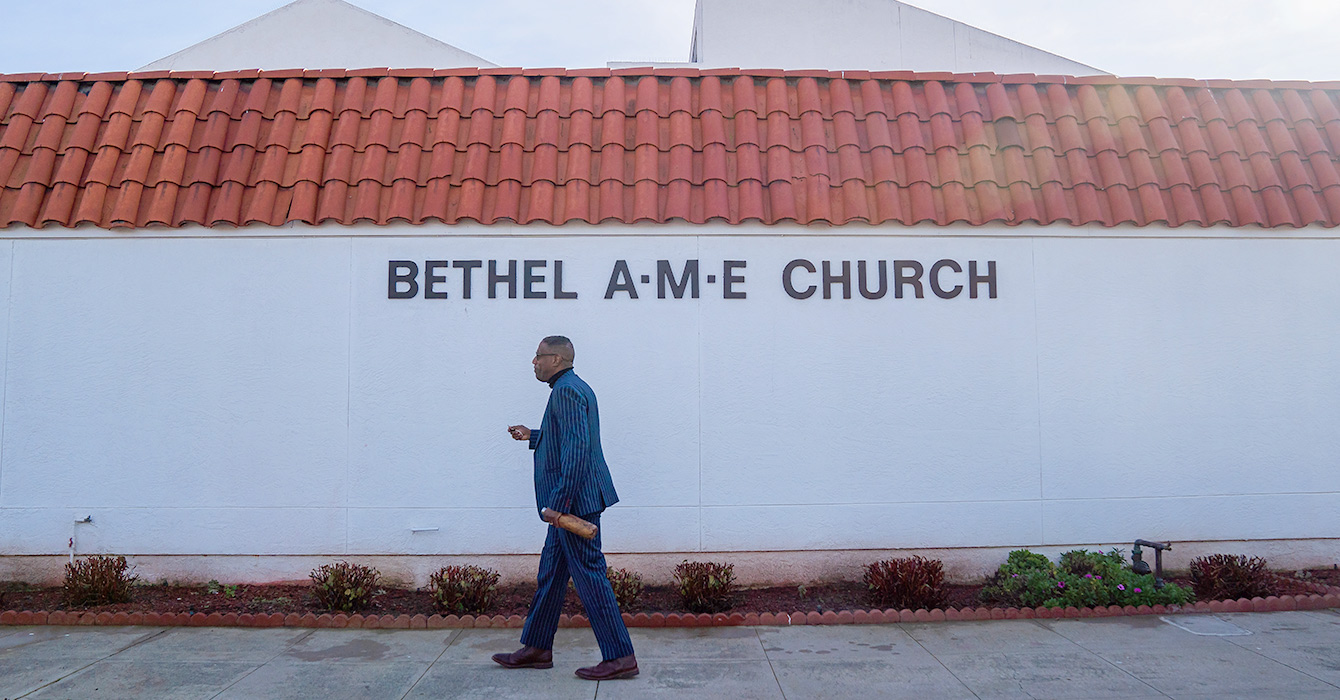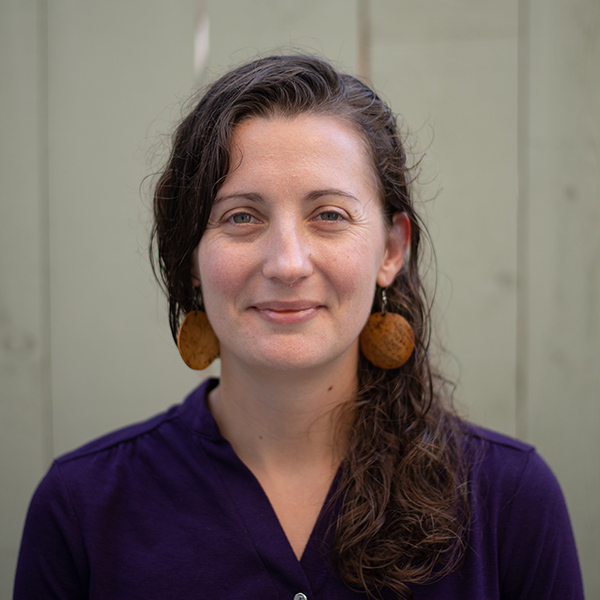When asked how he came to be involved with housing issues, the Rev. Harvey Vaughn III has a simple answer: pancakes.
The senior pastor of Bethel African Methodist Episcopal Church in San Diego spent many childhood Saturdays going to work with his father, who was a pastor himself and a supervisor with the Department of Housing and Urban Development in St. Louis. Vaughn knew that if he tagged along with his father on the weekends, the two would stop for pancakes.
“I didn’t realize that I was actually really being indoctrinated in working with people to make sure that they had quality housing,” Vaughn said.
Vaughn went on to work for a housing program at a St. Louis nonprofit before eventually heading to San Diego, where he now leads the city's oldest Black church and its more than 600 congregants.
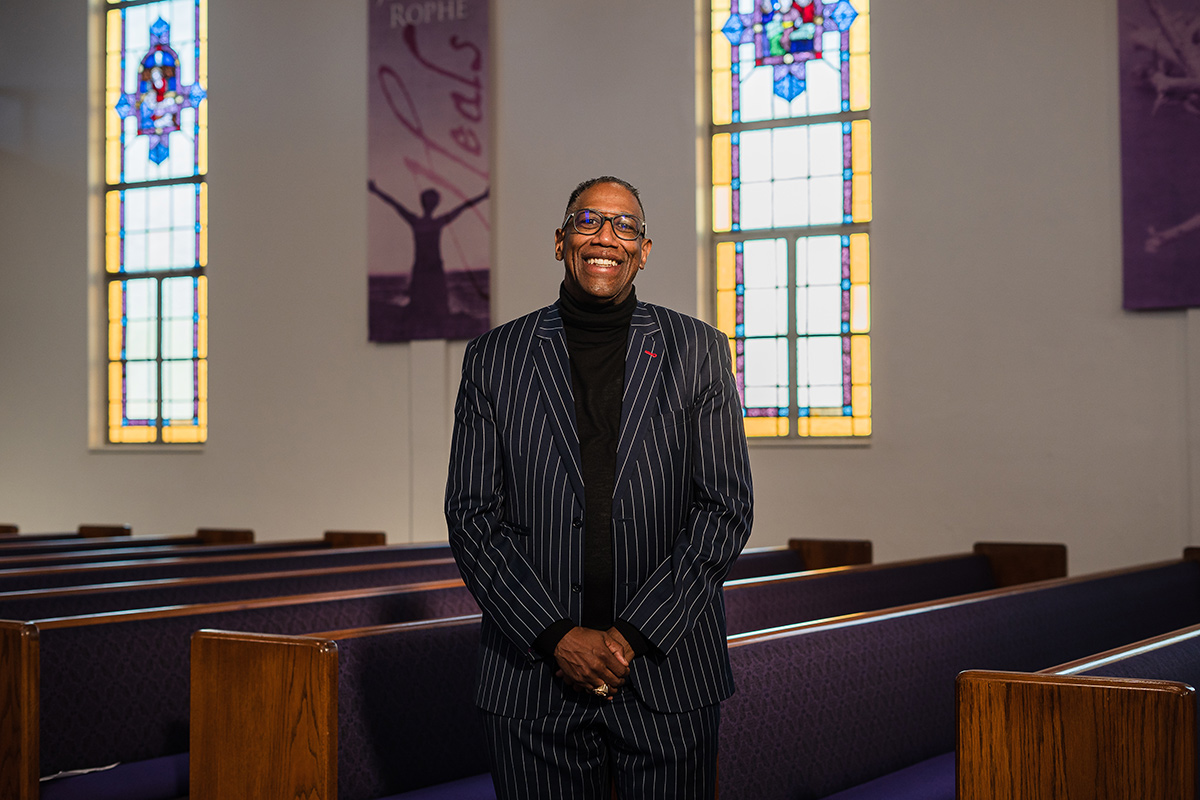
When Vaughn heard a public radio report about homelessness and the lack of affordable housing in San Diego, he felt called to find a way for his church to get involved.
He shared his dream with Robbie Robinson, a member of his congregation who told him about a new project in the works called Yes in God's Back Yard, or YIGBY. The group hoped to build affordable housing units on church property around San Diego County.
The name is a reimagining of the old affordable housing debate between the “Not in my backyard” or NIMBY crowd and the “Yes in my backyard” or YIMBY contingents.
“One of the problems that they have in San Diego, especially, is getting affordable housing in neighborhoods because a lot of people don’t want you to build affordable housing,” Vaughn said.
He believed that his church could be part of the solution.
What popular phrases like “Not in my backyard” does the gospel turn upside down?
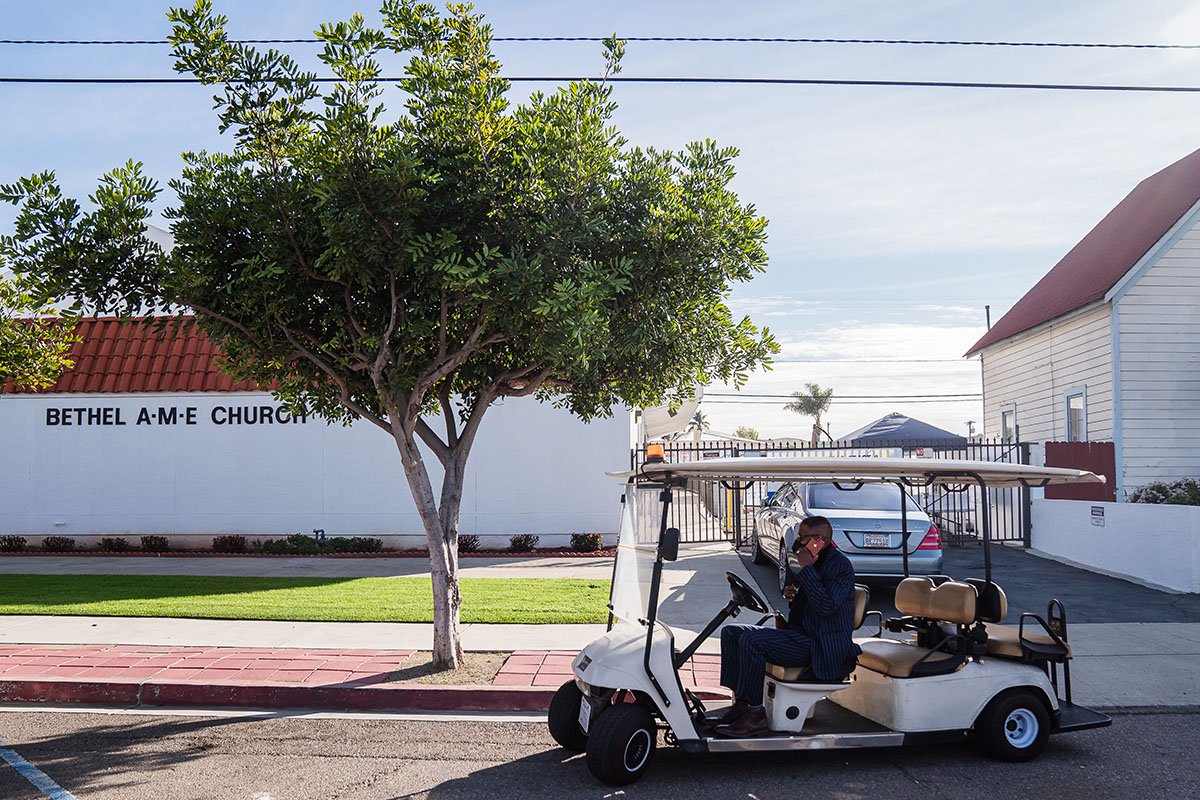
A way to catch up
For Monica Ball, who has spearheaded the YIGBY program from the initial idea scrawled on napkins to its current form, building affordable housing on property owned by religious institutions or places of worship was a potential answer to an unrelenting problem.
For years, she worked to help people living on the street, and she saw organizations that had clients ready to move into homes but couldn't find places for them to live.
“That's like a teacher saying to a student, ‘You should be graduating, but we ran out of diplomas,’ ” Ball said.
In a conversation with a county official, Ball learned that places of worship owned well over 1,000 parcels of land in the area.
“That was a little bit mind blowing,” she said.
A 2020 study from the University of California, Berkeley found 38,800 acres of land in California used for religious purposes that could potentially be developed to include affordable housing. That amount of land, the study says, is roughly the size of the city of Stockton, which has a total area of 61.7 square miles.
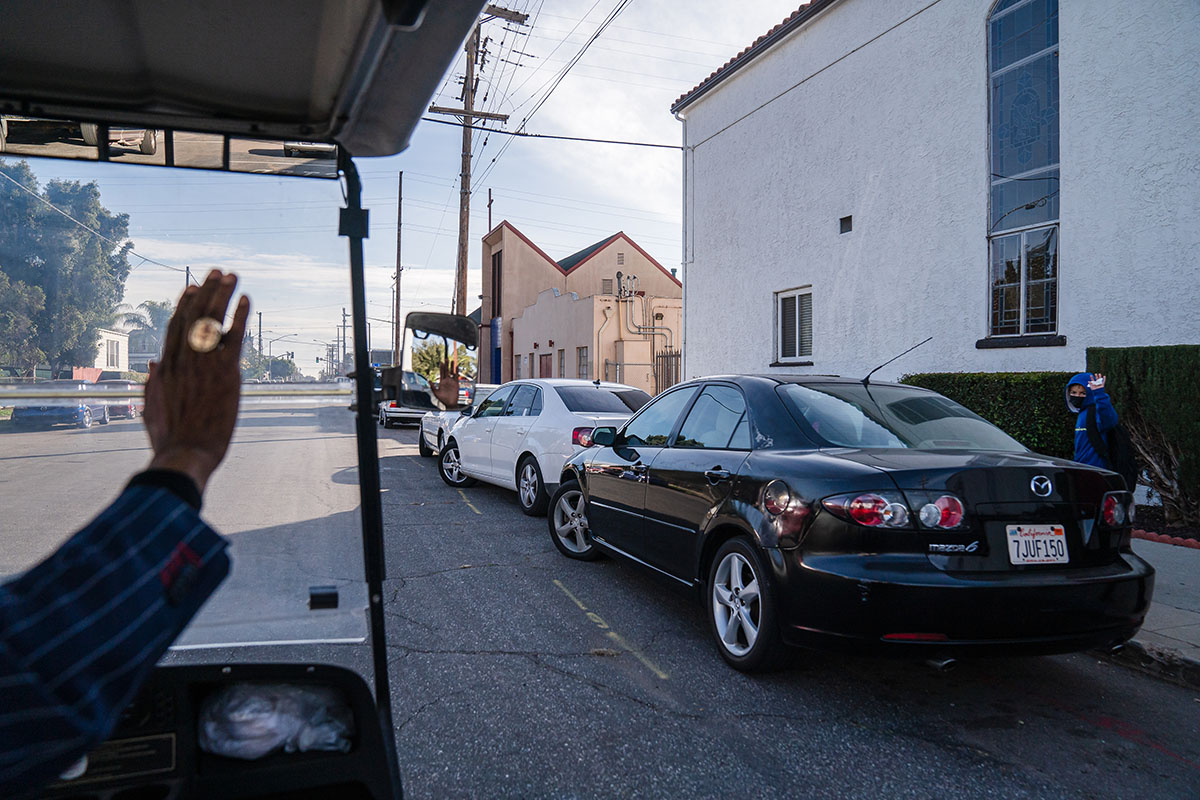
“I have very strong feelings that the faith community is responsible for vulnerable populations. That is absolutely true for every world religion,” said Ball, who attends a Presbyterian church.
“My faith community friends, all they can think to do is go downtown with backpacks, blankets and bologna sandwiches, and we’re sitting on acres of land. It doesn't take a genius to put together what needs to be done here.”
In San Diego, the study found, faith communities owned 4,675 acres with development potential. Even if only 10% of that land were developed for affordable housing, at 20 units per acre, more than 9,300 units would be added to San Diego's market, Ball noted.
“We’re almost there to cover who we’ve got in our own system documented as unsheltered and temporarily sheltered,” Ball said.
If enough religious institutions decided to participate in the effort, Ball said, the current need could be met.
“It’s like getting behind on your homework,” Ball said. “You've got to commit to catch up. But once you catch up, it’s way easier to keep up. That’s the reality that the community and America need to face.”
Who has fresh eyes to see both the needs in a community and the strengths of a congregation?
The Berkeley study also found that religious organizations face barriers to building affordable housing on their properties. Those barriers include local building regulations, limited financing options and a lack of expertise in housing and real estate.
That, Ball said, is where YIGBY comes in. The program hopes to offer options to streamline the process and guide houses of worship through the decisions they need to make.
Traditional affordable housing development takes about six years to complete and generally uses tax credit financing, according to Tom Theisen, former president of the regional task force on homelessness and member of the YIGBY advisory committee.
The costs per unit can easily reach $600,000, Theisen said.
Such projects are not self-sustaining and require complex financing because the amount of rent money received from housing vouchers will not cover that cost.
Ball said that by “activating” land already owned by faith communities, this model can be flipped and allow for innovative approaches that shorten the time frame and lower costs.
The YIGBY team’s goal is to develop self-sustaining projects that cost about $200,000 per unit so that rent will cover loan repayments.
But first YIGBY needed a proof of concept project. That's where Vaughn and Bethel AME church stepped in about three years ago.
Activating the land
Ball and Vaughn agree that construction on the pilot project would be done by now if not for the pandemic.
The spread of COVID-19 shuttered the city planning offices that needed to approve Bethel AME’s construction plans. And then, because of pandemic-related supply chain shortages, the cost of building supplies increased, meaning that the project needed to rework its design in order to stay sustainable.
But the wait hasn’t been all bad. Building regulations for Logan Heights, the predominantly Latino neighborhood where the church is located, now allow an increased number of units in the new plan.
“The delay is actually working out to our advantage,” Vaughn said. “We didn’t see it like that at the time — man plans, God laughs, of course.”
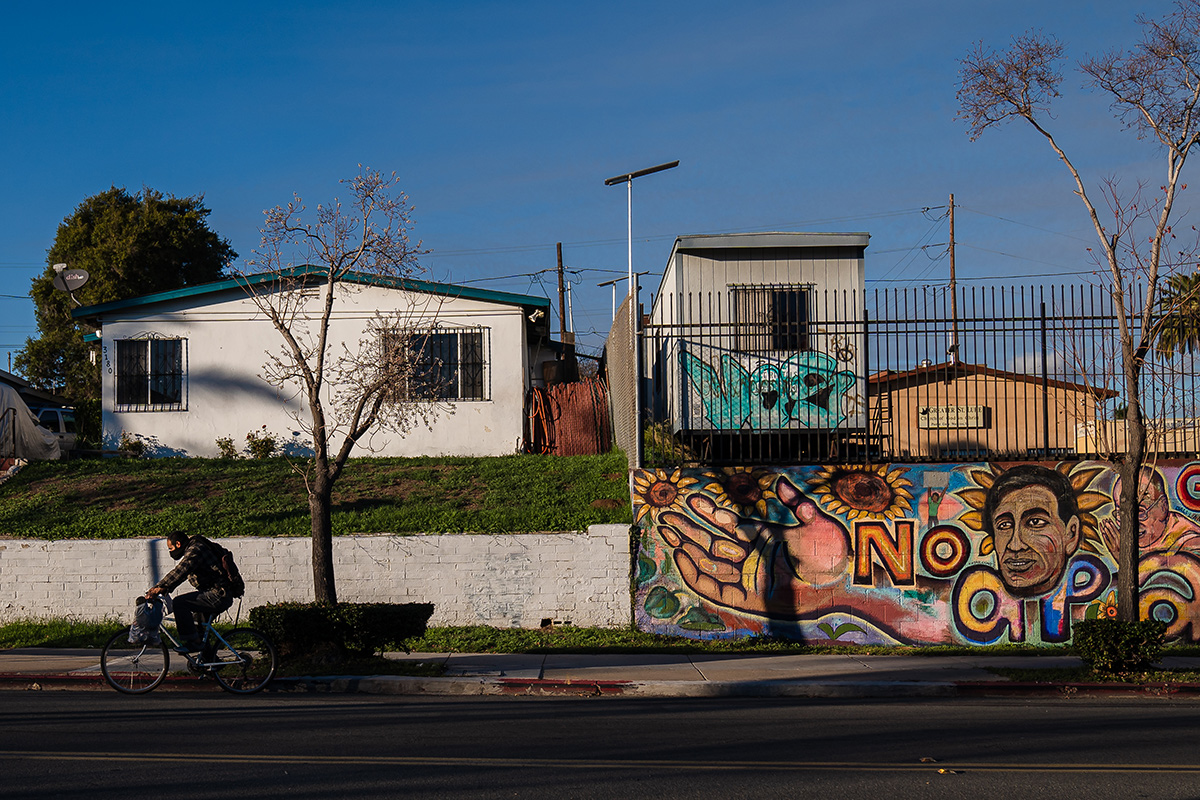
Even without a virus wreaking havoc across the globe, affordable housing construction isn’t easy, Vaughn said.
“If you’re going to do this, if you’re a pastor, you better make sure that this is what the Lord has for you to do,” he said. “That's the first thing that I would say. Building is not easy. Keeping people motivated and on board with you is not easy.”
“If you're going to pursue this, from a clergy perspective, I would say spend some time in prayer and make sure that it’s the Lord leading you and not your ego to do the building. It’s not going to be easy, and if it’s not God-ordained, you’re going to give up when it gets hard.”
It’s also important to get buy-in from the congregation and collectively determine what population the faith community wants to serve.
“They need to find within their fellowship a champion or two or three,” said the Rev. Rolland Slade, senior pastor of Meridian Baptist Church in El Cajon, California, and a member of the regional task force on homelessness and the YIGBY advisory committee.
“There needs to be someone else other than just them as a leader who has a similar vision or can see developing their property as a benefit to both the congregation and to the community.”
Vaughn said that his congregation quickly got on board after he presented the idea and that the conversation soon turned to the possibility of housing veterans. Because it’s home to both Navy and Marine bases, San Diego has a large military population, active and retired.
“Our congregation has a lot of veterans,” Vaughn said. “So, of course, it was a natural, very organic discussion.”
What challenge can laypeople see that they are motivated to address? Who can work together on a major challenge?
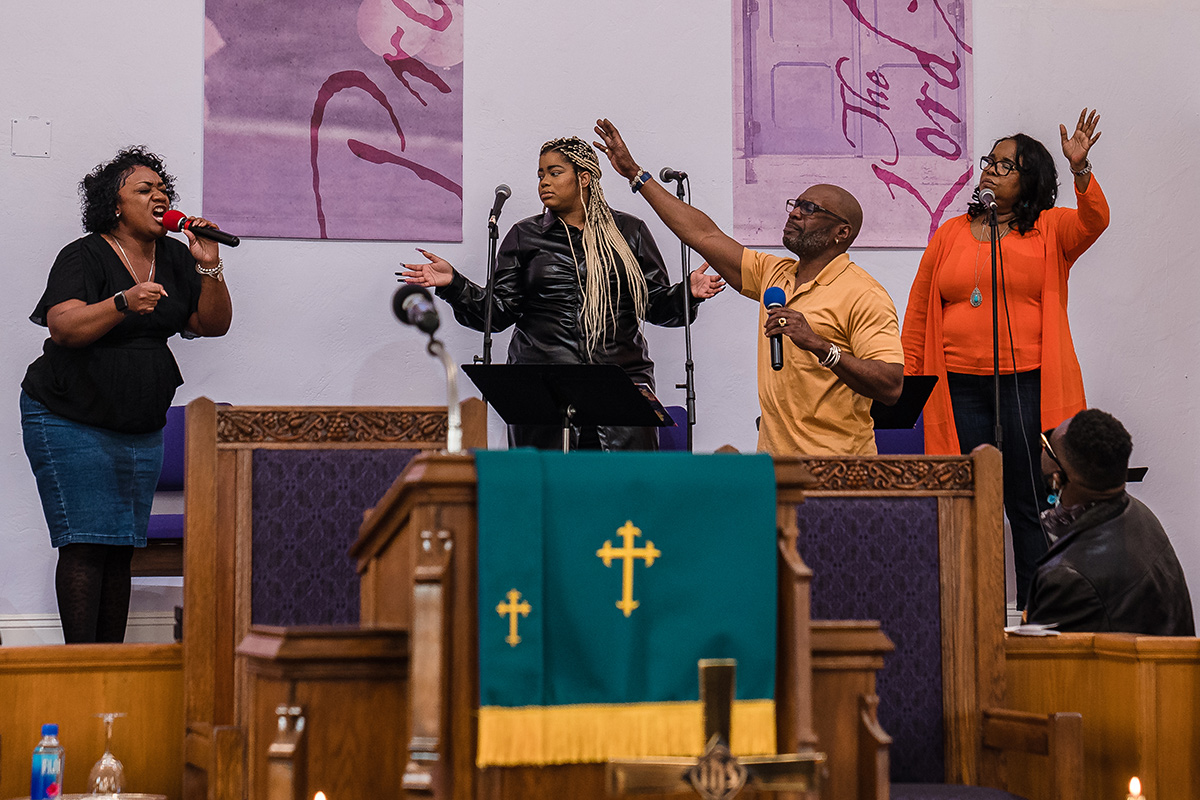
His project team began conducting site tours and, after seeing modular construction, decided to pursue that approach. Modular construction uses segments built off-site so that a building can be pieced together more quickly than traditional construction allows.
They raised funds to offset construction costs enough to make the project self-sustaining.
But, because the pandemic increased the costs of modular construction, they had to resubmit building plans using the more traditional method.
Ball still hopes to make modular construction a mainstay of YIGBY development, but, at the moment, the program's main goal is to get the pilot completed. Construction could begin as soon as in the next few months and is scheduled to wrap up in 2023.
For Vaughn, being able to offer quality homes to people who need them will be worth the effort it is taking to get his YIGBY project into the ground.
“That can change the trajectory of a person’s life,” he said.
What ideas do people in your community have that need support in order to launch an experiment? What needs a “proof of concept” in your community?
Layers of trust
For faith leaders interested in starting housing projects, Slade and Vaughn both recommended finding experts to guide their congregations rather than trying to learn everything on their own.
“You don’t have to go into it knowing all about it,” Slade said.
Trusting outsiders can be difficult, however, given some faith communities’ experiences with predatory developers.
Ball said she learned that lesson early on when someone lectured her on what pastors, particularly Black pastors, would and would not be willing to risk regarding their land.
“Justifiably, the faith community is leery about developers,” she said. “There are commercial brokers out there who prey on the church’s naive nature about its own land and what it can do with it and its value.”
She hopes that YIGBY will be able to suggest trustworthy developers and other experts after the first projects succeed and they have buy-in from more churches.
For churches that want to help with housing insecurity but prefer a different model, there are other options, Slade said. Meridian Baptist plans to build emergency cabins on its property that offer shelter 90 days at a time as a way to transition people to more permanent homes.
With all divisions and polarization in our communities, how do you cultivate trust in experts, expertise and institutions?
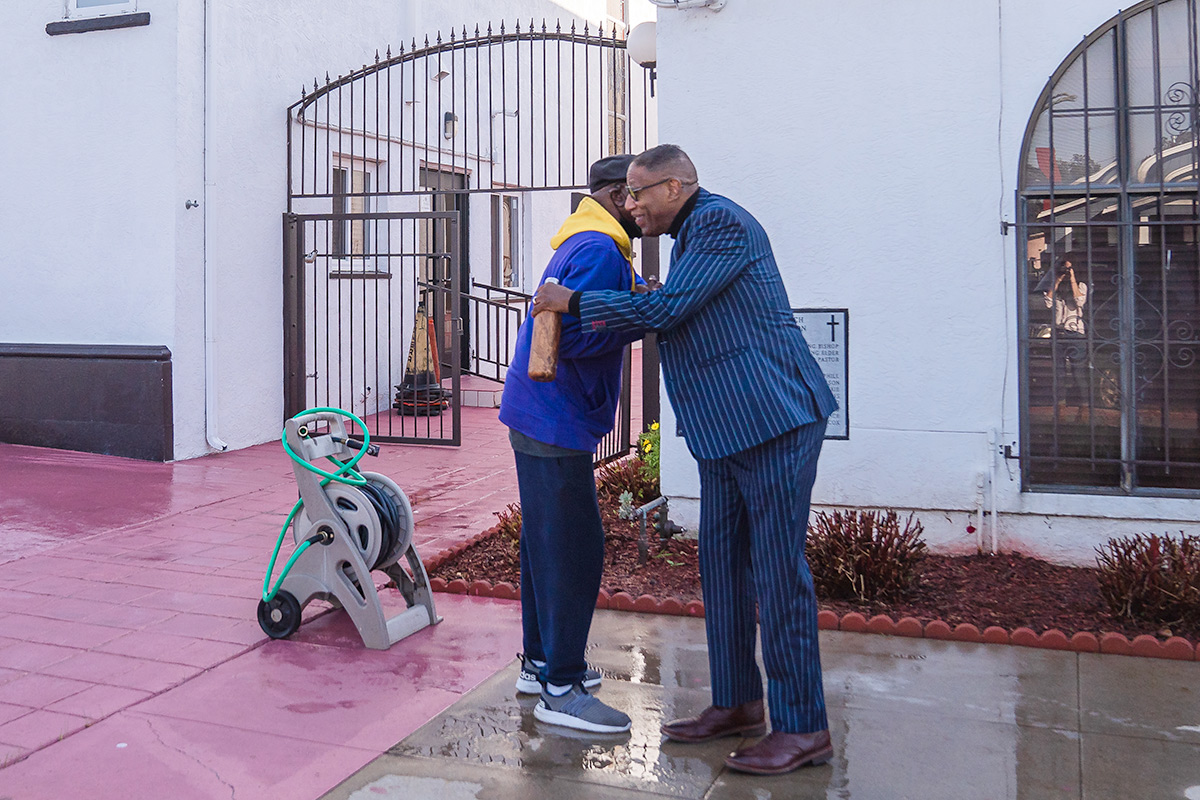
First, churches need to build trust when working with vulnerable populations, he said.
Before the pandemic, Meridian hosted weekly dinners for community members living on the streets, and Slade spent time sitting and talking with people who attended.
He recalled one man who came for about three months and never wanted to talk with him, but Slade kept sitting with the man.
“He looked at me one Wednesday night and said, ‘Pastor, I'm tired. I want to get off the street,’ ” Slade recalled. “I said, ‘How can I help you?’ ”
The man asked Slade to sign a document that said he had been homeless so that he could go to the Department of Veterans Affairs for help.
Slade’s willingness to sit with the man even when it was uncomfortably silent is what he believes made the difference in building trust over time.
Likewise, YIGBY backers hope one day soon that patience and trust will help build houses.
Questions to consider
What popular phrases like “Not in my backyard” does the gospel turn upside down?
Who has fresh eyes to see both the needs in a community and the strengths of a congregation?
What challenge can laypeople see that they are motivated to address? Who can work together on a major challenge?
What ideas do people in your community have that need support in order to launch an experiment? What needs a “proof of concept” in your community?
With all divisions and polarization in our communities, how do you cultivate trust in experts, expertise and institutions?

